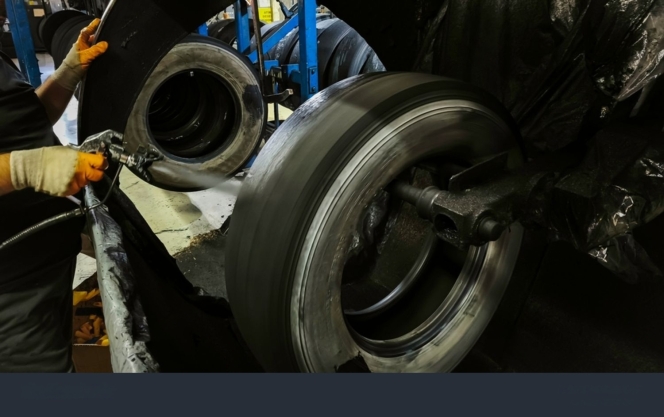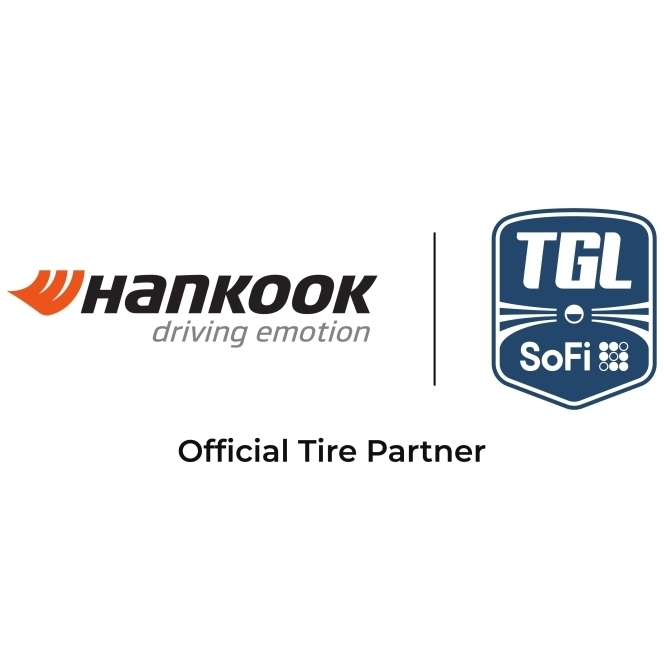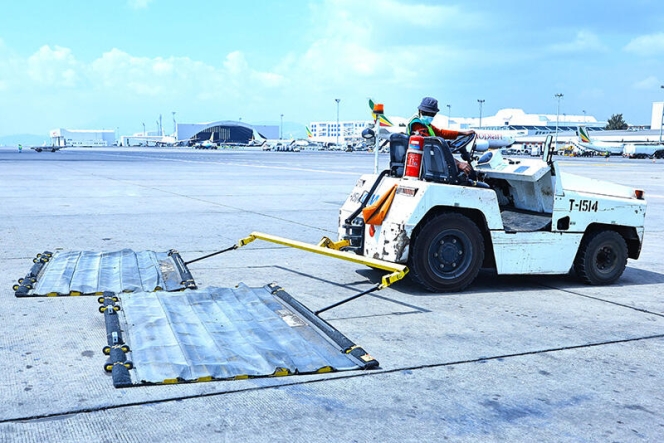Betting Big On R&D And Testing Capabilities
- By Sharad Matade
- October 13, 2021
JK Tyre is preparing for the future mobility demand, banking on its R&D and testing capabilities. The pioneer of radial tyre technology to green tyres in India, JK Tyre is in the process of launching new technologies from puncture-proof tyres to UUHP ( Ultra Ultra High Performance) and electric vehicles tyres for passenger cars and connected mobility solutions.
“If you look at the evolution of tyre technologies in India, today radialisation in the passenger car tyre segment has reached over 90 percent, while it is in the 50–55 percent range in the commercial tyres segment. In the next three to five years, the radialisation of commercial tyres will reach 65 to 70 percent. We will also see a fast transition from tube tyres to tubeless tyres in the country soon. New technologies such as smart tyres and puncture-proof tyres will pick up gradually segment-wise in India, catering to niche demand initially. As and when OEMs require these new technologies, our products will be readily available,” said Dr Rabindra Mukhopadhyay, director, R&D, JK Tyre & Industries,.

JK Tyre acquired Pune-based Treel Mobility. Today, JK Tyre is India’s only tyre company that indigenously manufactures Tyre Pressure Monitoring Systems (TPMS) based on TREEL sensor technology for OE and OE replacement markets. Its smart tyres provide live data on tyre temperature, tyre pressure, tyre positions, locations, distance travelled and expected tyre life through its algorithm, thus capturing the full health of the tyres.
The company is pushing its smart tyre solutions in the replacement market, especially for fleet companies. “It’s all about the value for money. If the customers think this product is value for money, they will pay for it,” said Dr Mukhopadhyay. The company’s smart tyres are available in PCR, 2-wheeler, LCV and truck categories.
The company is engaged in the manufacturing and marketing of automotive tyres, tubes and flaps. Today, the company has 12 state-of-the-art manufacturing facilities – three plants in Mysuru; three plants in Haridwar; one plant each in Banmore (MP), Kankroli (Rajasthan) and Chennai, and three plants in Mexico. These plants manufacture around 32 million tyres per annum.
JK Tyre’s products comprise truck & bus radial and bias, passenger car radials, two- and three-wheeler tyres, LCV & SCV bias and radial, off-highway tyres (OTR and Farm), as well as speciality tyres for military and defence, industrial and farm applications besides racing tyres.
Products in Pipeline
The company will soon introduce new products catering to the demand of new requirements, and one of them is a puncture-proof tyre for cars. The puncture-proof tyre has an inner coat of a special rubber compound developed by the company that seals and heals the tyre immediately. As per the company, its puncture-proof tyre can sustain up to 300 punctures. It also enhances durability and does not allow fuel efficiency to drop.
 Bias tyres will also remain the focus of JK Tyre to maintain its leading position in the commercial tyres segment. According to Dr Mukhopadhyay, though India is aggressively moving towards the radialisation of commercial tyres, bias tyres will remain in demand for the next 15-20 years owing to the road conditions and the benefits it provides. “For short-haul and within-the-city transportation, bias tyres are still preferred. Globally, bias tyres still own around 10 percent market, and India is one of the leading exporters of bias tyres,” said Dr Mukhopadhyay.
Bias tyres will also remain the focus of JK Tyre to maintain its leading position in the commercial tyres segment. According to Dr Mukhopadhyay, though India is aggressively moving towards the radialisation of commercial tyres, bias tyres will remain in demand for the next 15-20 years owing to the road conditions and the benefits it provides. “For short-haul and within-the-city transportation, bias tyres are still preferred. Globally, bias tyres still own around 10 percent market, and India is one of the leading exporters of bias tyres,” said Dr Mukhopadhyay.
Tyres for EVs are expected to have lower rolling resistance, much lower tyre noise and high torque resistance with durability. JK Tyre has also developed new pattern series for electric scooters. For the scooter tyres, the company has a compound which has a 12 percent reduction in hysterias, leading to higher fuel saving and lower heat-related failures. JK Tyre is currently working with MG Motor to offer EV tyres on the passenger car tyre side. “We also have plans to offer electric passenger and light truck tyres,” added Dr Mukhopadhyay.
JK Tyre has also developed the second generation of EV tyres for passenger cars, which can up to 13 to 14 k per KVH.
Though niche, the high-performance bikes and car segment is gaining traction in India, and JK Tyre is also eyeing the same segment. For premium, high-end luxury cars, for domestic and export, JK Tyre has developed Levitas Ultra, an ultra-high-performance tyre. The Levitas Ultra offers the best in class ride and handling, braking, comfort and noise level. The company will also bring out ‘H’ rated tyres designed for high-speed motorcycles, which can reach 210 kmph, focusing on a lower aspect ratio. The company has tested and validated the Levitas Ultra tyre for India and Europe. The company claims the Levitas Ultra tyre’s performance is tuned at a level better than the global brands in overall handling, performance, control, wet grip and noise. “We are also working on non-pneumatic tyres, but it will take time to develop,” added Dr Mukhopadhay.
R&D and Testing Capabilities
 R&D has always been an integrated focus of JK Tyres to bring new technologies. A few decades ago, almost all tyre companies in India collaborated with foreign tyre companies to get technologies. To reduce dependency on international companies, JK Tyre established India’s first independent elastomer and tyre research institute, Hari Shankar Singhania Elastomer & Tyre Research Institute (HASETRI), in 1991 at Kankroli, Rajasthan. Today, HASETRI is one of the leading research institutes in Asia in rubber and tyre technology. HASETRI works in material characterisation, product characterisation, simulation, environmental analysis, calibration, consultancy and training.
R&D has always been an integrated focus of JK Tyres to bring new technologies. A few decades ago, almost all tyre companies in India collaborated with foreign tyre companies to get technologies. To reduce dependency on international companies, JK Tyre established India’s first independent elastomer and tyre research institute, Hari Shankar Singhania Elastomer & Tyre Research Institute (HASETRI), in 1991 at Kankroli, Rajasthan. Today, HASETRI is one of the leading research institutes in Asia in rubber and tyre technology. HASETRI works in material characterisation, product characterisation, simulation, environmental analysis, calibration, consultancy and training.
In 2018, JK Tyre inaugurated its Global Technology Centre RPSCoE in Mysuru, bringing together the best in class facilities under one roof. The RPSCoE houses HASETRI and The JK Tyre Tech Centre. The company is ramping up its R&D and testing capabilities to meet future requirements. This year, the company has allocated a budget of INR 1.1 billion to procure equipment for tyre analysis. JK Tyre has already ordered the Flat-Trac CT Plus system, made by MTS, which is engineered to deliver highly accurate and repeatable measurements of tyre force and moment properties under steady-state and dynamic conditions. The machine, which costs over INR 500 million, has capabilities of steady-state force and moment measurement, dynamic force and moment measurement, sinusoidal radial deflection tests, simulation testing and effective rolling radius measurement. Another highlight of the centre is semi-anechoic chamber for noise, harshness and vibration measurement. JK Tyre was also the first tyre company in India to invest in a first-of-its-kind semi-anechoic chamber.
 JK Tyre also has a centre of excellence at IIT Madras, a joint venture between the company and IIT Madras. Over the years, the company has developed many predictive technologies and other solutions at the centre. The IIT Madras centre has a virtual proving ground to have the actual performance for the tyres on a vehicle without having real tyres or vehicles. Various data for the vehicles and a tyre is fed into the software, and you can put data of any test track and drive the car with different speeds. The virtual proving ground helps the company generate various data to determine what kind of tyres is best suited for a particular vehicle.
JK Tyre also has a centre of excellence at IIT Madras, a joint venture between the company and IIT Madras. Over the years, the company has developed many predictive technologies and other solutions at the centre. The IIT Madras centre has a virtual proving ground to have the actual performance for the tyres on a vehicle without having real tyres or vehicles. Various data for the vehicles and a tyre is fed into the software, and you can put data of any test track and drive the car with different speeds. The virtual proving ground helps the company generate various data to determine what kind of tyres is best suited for a particular vehicle.
For enhancing its door testing capabilities, JK Tyre is also establishing its wet grip testing capability. The company has bought a skid trailer used for on-road tyre characterisations- force & moment, rolling resistance dry and wet grip. Currently, it is at NATRiP, Indore.
Recently, HASETRI received accreditation from the prestigious National Accreditation Board for Testing & Calibration Laboratories (NABL) for outdoor regulatory testing as per ISO/IEC 17025:2017. With this, HASETRI has become the first Scientific & Industrial Research Organisation (SIRO) recognised by DSIR, Government of India and an independent tyre testing and research institute in India to receive such accreditation from NABL.
 Under the scope for outdoor testing, the accreditation includes testing for wet grip and coast-by noise for C1 (passenger) and C2 (light truck) category tyres as per ECE R117 method. The indoor tyre testing facilities for regulatory requirement like rolling resistance, endurance, dynamic growth etc. have already been accredited by NABL as per ISO/IEC 17025:2017.
Under the scope for outdoor testing, the accreditation includes testing for wet grip and coast-by noise for C1 (passenger) and C2 (light truck) category tyres as per ECE R117 method. The indoor tyre testing facilities for regulatory requirement like rolling resistance, endurance, dynamic growth etc. have already been accredited by NABL as per ISO/IEC 17025:2017.
JK tyre is exploring many possibilities on the material development front, one of which is mixing solid and liquid materials. “We are exploring possibilities of mixing natural rubber at the level of latex form with other solid materials. With this mixing process, we can save lots of energy consumption,” said Dr Mukhopadhyay. The company is working with different raw materials suppliers, especially synthetic rubber suppliers like SBR, to convert petrol-based materials to non-petrol based materials.
Reuse, retread and recycle are also focus of the company. Currently, the company is using three percent recycled rubber in its new products. In the future, it targets to have 10 percent recycled rubber in the new products in the next five years. “However, a greater challenge is to have virgin rubber properties in the recycled rubber,” added Dr Mukhopadhyay.
JK Tyre is also targetting to increase its retread tyre volume . As of now, it is retreading 300 tonnes of used tyres per day, aiming to take it to 500 tonnes per day. (TT)
- INDIAN TYRE INDUSTRY
- TYRE RETREADING
- BIS STANDARDS
- IS 15704
- ECE R109
- CIRCULAR ECONOMY
- MSME CHALLENGES
- AUTOMOTIVE REGULATION
- CARBON REDUCTION
- FREIGHT
- LOGISTICS
Retreading Hangs In Balance Over Regulatory Conundrum
- By Gaurav Nandi
- December 30, 2025

A population of over 1.4 billion people catapulting into the world’s third largest automobile market with four million trucks plying across a road network of 6.3 million kilometres supported by a USD 13.4 billion tyre market and a mining sector contributing around 2–2.5 percent of the country’s GDP demonstrate the strength of India’s automobile, freight and tyre sectors.
The story doesn’t end there as the Central Government adopts a strategic approach on reducing carbon emissions across these verticals, especially automobile and tyres, with targets such as the Net Zero Carbon Emissions by 2070, battery electric vehicles target by 2030, zero-emission truck corridors, Extended Producer Responsibility for the tyre sector; the list just goes on.
Amidst all such statistics and targets, a silent spectator remains the old and varied sector of tyre retreading. In a recent news story reported by Tyre Trends, the Indian Tyre Technical Advisory Committee (ITTAC) had made a proposal to Tyre Retreading Education Association (TREA) for mandating certain standards that will improve the quality of retreads. ITTAC has made recommendations to the BIS committee. TREA is part of the same committee. ITTAC and TREA are recommending different standards.
These standards included BIS retread standards, namely IS 15725, IS 15753, IS 15524 and IS 9168. The ITTAC had partially aligned Indian requirements with ECE R109, the European regulatory benchmark.
In a reply to the proposal, which was accessed by Tyre Trends, TREA urged the Indian Tyre Technical Advisory Committee to seek a deferment or non-applicability of BIS standard IS 15704:2018 for retreaded commercial vehicle tyres, warning that mandatory enforcement could cripple the sector.
In the letter, TREA argued that IS 15704:2018 is largely modelled on new tyre manufacturing norms and is technically unsuitable for retreading, which is a restoration and recycling process.
The standard mandates advanced laboratory tests such as spectrometer-based rubber analysis, endurance testing and compound uniformity checks, requirements that most retreading units, particularly small and medium enterprises, are not equipped to meet
The association highlighted that even large retreaders lack the infrastructure and skilled manpower needed for BIS-grade testing, while the sheer number of retreading units would make inspections and certifications operationally unmanageable for regulators.
TREA warned that compliance costs linked to machinery upgrades, audits and quality control could force 70–80 percent of units to shut down, leading to job losses, higher fleet operating costs and adverse environmental outcomes due to reduced recycling
Instead, TREA proposed that BIS prioritise retreading-specific standards such as IS 13531 and IS 15524, which focus on materials, process control, safety and quality consistency.
The body has also called for a phased transition roadmap, MSME support and industry training before any stricter norms are enforced, stressing that abrupt implementation would undermine the sector’s role in India’s circular economy.
The conundrum
India has a total of 36 administrative divisions comprising 28 states and 8 union territories. The tyre retreading sector has been continuously supporting circularity goals since the early 1970s across the world’s largest economy without getting mainstream recognition.
Even after five decades in service, the industry battles different bottlenecks including fragmentation, manpower shortage, tax pressures brought about by the recent GST revisions and now the implementation of such standards, just to name a few.
The sole practice that can simultaneously reduce carbon emissions from tyres and extend tyre life is assumed the nemesis of an ‘infamous and dangerous practice’ in some states of the country.
However, the industry has been drawing its techniques and quality parameters from the world’s oldest retreading economy, Europe.
“Big retreaders in India already have the necessary processes in place that conform to IS 15524 standards. However, as the standard is not yet mandated, we have voiced support for it because it is process-oriented and outlines how retreading should be carried out, including buffing and building procedures,” said TREA Chairman Karun Sanghi.
He added, “This standard focuses on how the work is done rather than imposing product-level testing that cannot be practically implemented. The current debate on IS 15704 stems from it being fundamentally incompatible. The standard includes requirements such as sidewall marking and destructive testing of retreaded tyres, which are impractical in a retreading environment where each tyre differs in brand, size, application and usage history,” he added.
Destructive testing, he argued, assumes uniform batch sizes. In retreading, where every casing is unique, testing even a single tyre would mean destroying finished products without yielding representative results. Applying such a framework would effectively require the destruction of every tyre in a batch, making compliance unviable.
“We have submitted our response to ITTAC and are awaiting feedback from the committee. We remain open to continued dialogue and will engage further once the committee responds to our submission,” said Sanghi.
According to him, a typical retreader processes about 300 tyres a month across multiple brands including MRF, JK Tyre, Apollo and Michelin and applications ranging from buses and trucks to mining vehicles. These casings vary widely in load cycles, operating conditions and duty patterns, often across several models from the same manufacturer.
The committee has cited European standard ECE R109, but Sanghi points to structural differences: “Europe is a global retreading hub where tyre manufacturers such as Michelin and Bridgestone dominate operations, collect their own tyres, retread them and return them to fleets, making batch-based destructive testing relevant. A similar model exists in US, where large tyre companies lead retreading and largely self-regulate without a single overarching standard. The Indian scenario is different, especially with a fragmented market.”
He stressed that the industry is not opposed to standards but to those that cannot be practically applied, warning that adopting European manufacturing-oriented norms without accounting for India’s market structure and operating realities would be counter-productive.
The debate is no longer about whether standards are needed but whether they are fit for purpose. Without accounting for India’s fragmented retreading ecosystem, enforcing impractical norms could dismantle a circular industry in the name of compliance.
TGL Season 2 Kicks Off With Hankook As Founding And Official Tire Partner
- By TT News
- December 29, 2025

The second season of TGL Presented by SoFi, where Hankook Tire serves as the Founding and Official Tire Partner, commenced on 28 December 2025. This innovative league, a venture of TMRW Sports with backing from icons like Tiger Woods and Rory McIlroy, represents a strategic alignment for Hankook, uniting two entities driven by technological advancement. The partnership provides a global platform to reinforce Hankook's premium brand positioning across North America and worldwide through extensive visibility during broadcasts and at the state-of-the-art SoFi Center in Florida.
This unique venue embodies the league's fusion of sport and technology, featuring a massive simulator with a dedicated ScreenZone and a dynamic GreenZone. This area, equipped with a turntable and over 600 actuators, meticulously replicates real-world golf conditions indoors, creating an immersive arena experience. The competition itself is fast-paced and engaging, with teams of PGA TOUR players competing in Triples and Singles sessions over 15 holes. Innovative elements like the point-doubling ‘Hammer’, real-time strategy via ‘Hot Mic’ and a Shot Clock ensure a dynamic spectacle for fans.
The season opener presented a compelling narrative as a rematch of the inaugural finals, pitting the undefeated Atlanta Drive GC, featuring Justin Thomas and Patrick Cantlay, against a determined New York Golf Club squad led by Matt Fitzpatrick and Xander Schauffele. This match set the tone for an intensive season running through March, where six teams and 24 top golfers will compete. For Hankook, this partnership is more than signage; it is an active engagement with a global community, delivering a distinctive brand experience that bridges cutting-edge mobility and sport for enthusiasts everywhere.
Dunlop Secures CDP ‘A List’ Recognition For Climate Change And Water Security
- By TT News
- December 29, 2025

Dunlop (company name: Sumitomo Rubber Industries, Ltd.) has made its way to the annual A-List of CDP for climate change and water security. This premier designation, awarded for the first time to the company in the 2025 evaluation, recognises world-leading performance in transparency, risk management and environmental action. CDP’s annual assessment is a key benchmark for corporate sustainability across climate, water and forests.
This achievement stems from the Group’s integrated approach to material issues outlined in its corporate philosophy. It treats the interconnected challenges of climate change, biodiversity and the circular economy holistically, advancing concrete initiatives under its long-term ‘Driving Our Future’ sustainability policy.
On climate, the Group’s science-based emission reduction targets for 2030 are validated by the Science Based Targets initiative. Operational efforts include pioneering green hydrogen production at its Shirakawa Factory and developing tyres made entirely from sustainable materials by 2050. The company also works to reduce emissions across its supply chain, lowers tyre rolling resistance to improve vehicle fuel economy and extends product life through retreading.
For water security, the strategy is driven by localised risk assessments at global production sites. In seven facilities identified as high-risk, the goal is to achieve 100 percent wastewater recycling by 2050. Progress is already evident, with the company’s Thailand factory reaching full wastewater recycling in 2024.
These coordinated actions on multiple environmental fronts formed the basis for the Group’s simultaneous top-tier recognition in both critical categories from CDP.
Bridgestone Launches Co-Creation Initiative With Ethiopian Airlines Group
- By TT News
- December 29, 2025

Bridgestone Corporation has initiated a novel co-creation programme in partnership with Ethiopian Airlines and Ethiopian Airports, focused on enhancing aviation safety at Addis Ababa Bole International Airport. This marks Bridgestone’s first sustained three-way collaboration with both an airline and an airport authority, targeting the reduction of Foreign Object Debris on runways and taxiways to support safer and more reliable aircraft operations.
The project was prompted by tyre-related incidents linked to debris at the airport, which previously risked disrupting flight schedules. Leveraging its specialised system for inspecting used airline tyres and analysing debris data, Bridgestone assessed conditions at the hub and proposed a tailored action plan. The company provided continuous support by analysing debris distribution patterns, developing visual hazard maps, advising on efficient collection methods and conducting training to raise awareness among airport personnel.
These sustained efforts have yielded significant results, substantially lowering the rate of tyre damage caused by runway debris compared to levels before the collaboration began. This reduction has supported improved on-time performance for Ethiopian Airlines while advancing overall operational safety. Additionally, the initiative has encouraged greater use of retreaded tyres, promoting economic efficiency and environmental sustainability within the airline’s operations.
Looking ahead, Bridgestone and Ethiopian Airlines Group plan to deepen their co-creation efforts, aiming to generate further value for the aviation sector and broader society through continued innovation and partnership.
Retta Melaku, Chief Operating Officer, Ethiopian Airlines, said, "At Ethiopian Airlines, the safety of our passengers, employees and aircraft is a priority. We are pleased to collaborate with Bridgestone to further strengthen our efforts in reducing FOD at Addis Ababa Bole International Airport and ensure safe operations at the hub airport."
Getaneh Adera, Managing Director, Ethiopian Airports, said, "We remain fully committed to upholding the highest safety standards at Bole International Airport at all times. This significant achievement in reducing FOD is the result of our strong commitment for safe operations and close collaboration with Bridgestone. Through our co-creation activities, we are pleased to have realised safer operations with enhanced productivity and economic value."
Jean-Philippe Minet, Managing Director, Bridgestone Aircraft Tire (Europe) S.A., said, "By combining the learnings and insights from Ethiopian Airlines' operational issues with our analysis technology and know-how, we have deepened our co-creation to propose customised solutions. We are delighted to contribute to safe aircraft operations with peace of mind and to improved operational productivity through the co-creation of efficient FOD reduction on airport surfaces. Through further expansion and evolution of this solution, we will amplify the value of our ‘Dan-Totsu Products’, trust with our customers and value of the data for creating new value."







Comments (0)
ADD COMMENT